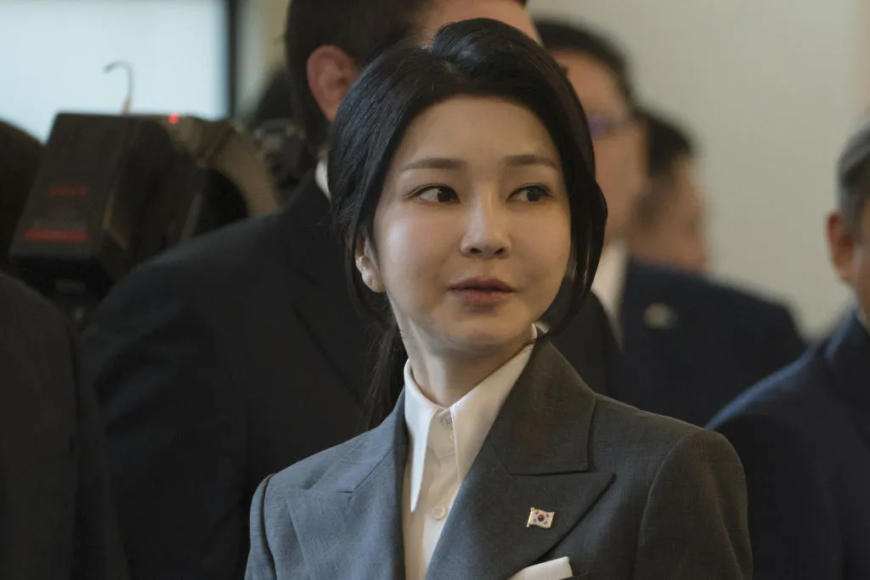Shockwaves in Seoul: Arrest Warrant Sought for Former First Lady Kim Keon Hee Amid Expanding Investigation
South Korean prosecutors have requested an arrest warrant for former First Lady Kim Keon Hee in a sweeping investigation. Here's a detailed look into the charges, political ramifications, and public reaction.

Former First Lady Kim Keon Hee Faces Arrest Warrant in Expanding Scandal
Seoul, August 8, 2025 – South Korean prosecutors have made headlines this week after officially requesting an arrest warrant for Kim Keon Hee, the former First Lady and wife of ex-President Yoon Suk Yeol. This development marks a dramatic escalation in a high-profile investigation that has already gripped the nation and could have far-reaching political consequences.
The warrant request, submitted just days after her intensive questioning by state prosecutors, raises serious questions about the transparency and accountability of South Korea’s highest office and could further polarize the nation.
Background of the Investigation
The probe into Kim Keon Hee’s alleged misconduct began earlier this year but had remained largely under the radar until early July, when prosecutors summoned her for questioning in connection to multiple allegations, including stock manipulation, bribery, and improper influence related to her husband’s administration.
The investigation stems from several controversial business dealings involving Deutsch Motors stock trading, with suspicions of insider trading dating back to before her husband's presidency. Earlier reports also cited concerns over her influence in policy matters and personal financial gains during her tenure as First Lady.
A senior prosecutor familiar with the case stated that “the weight of the evidence, combined with the risk of destruction of evidence, prompted us to request an arrest warrant.”
Legal Charges and Implications
The key legal issues in the case center around:
-
Stock Manipulation: Alleged manipulation of stock prices through coordinated transactions and insider information from 2010 to 2011, related to Deutsch Motors.
-
Undisclosed Financial Assets: Failure to declare income and holdings in various investment vehicles, raising suspicions of money laundering.
-
Improper Use of Influence: Allegations that Kim Keon Hee used her proximity to the president to benefit certain corporations and lobbyists.
If formally charged and convicted, she could face up to 10 years in prison for financial crimes under South Korea's strict anti-corruption laws.
A constitutional scholar from Seoul National University told The Korea Herald that “this would be one of the most consequential legal actions ever taken against a former first lady in South Korea’s democratic history.”
Public Reaction and Political Fallout
Public sentiment remains sharply divided. While progressive groups and opposition parties have long called for accountability, conservative circles accuse prosecutors of political targeting.
A large crowd gathered outside the Seoul Central District Prosecutors' Office following the announcement, with chants ranging from “Justice for Korea” to “Political Witch Hunt.” The Democratic Party of Korea has demanded a full public inquiry, while Yoon Suk Yeol’s People Power Party condemned the move as “a disgraceful attack on the dignity of the former First Family.”
Surveys conducted by Gallup Korea in the last 24 hours indicate a 53% approval rating for the investigation, but with 38% expressing concerns about its political timing.
President Yoon’s Response and Future Legal Ramifications
Although Yoon Suk Yeol left office earlier this year, he remains an influential figure in South Korean conservative politics. His silence on the issue has drawn criticism from both sides of the aisle.
If the court approves the arrest warrant, it may open the floodgates for further investigations into figures within Yoon’s former administration. Legal analysts suggest that prosecutors may pursue financial tracing and digital records to bolster their claims.
Meanwhile, Kim Keon Hee's legal team has vigorously denied all allegations. Her lawyer stated during a press briefing that the case is “based on fabricated accusations fueled by political enemies with no factual foundation.”
A Broader Look at Political Accountability in South Korea
South Korea has a long and complicated history of holding high-ranking political figures accountable, with two former presidents—Park Geun-hye and Lee Myung-bak—serving prison time for corruption and abuse of power. The move to request an arrest warrant for a former first lady, however, breaks new ground.
Political analysts are comparing the situation to the Choi Soon-sil scandal during Park’s presidency, emphasizing the recurring theme of behind-the-scenes influence in Korea’s political elite.
“In a society that values justice but has struggled with entrenched power networks,” said a report by Yonhap News, “this case could be a tipping point for reforms in both governance and the legal framework surrounding public officials.”
What Happens Next?
The Seoul Central District Court is expected to review the arrest warrant by Monday, August 11, with a decision likely to follow within 48 hours. Should the warrant be granted, Kim Keon Hee would be immediately taken into custody for pre-trial detention.
Observers say that the investigation is likely to expand, possibly encompassing other senior figures from Yoon’s inner circle. Prosecutors have already hinted at “additional persons of interest,” though no names have been publicly disclosed.
For now, the nation watches closely, caught between demands for justice and fears of further political destabilization.
Conclusion
The request for an arrest warrant against Kim Keon Hee signals a momentous shift in South Korea’s approach to legal accountability at the highest levels of power. Regardless of the outcome, it’s a story that is bound to leave an indelible mark on the nation’s political landscape.
With South Korea already facing economic challenges and regional tensions, this legal saga adds another layer of complexity to the country’s future.











